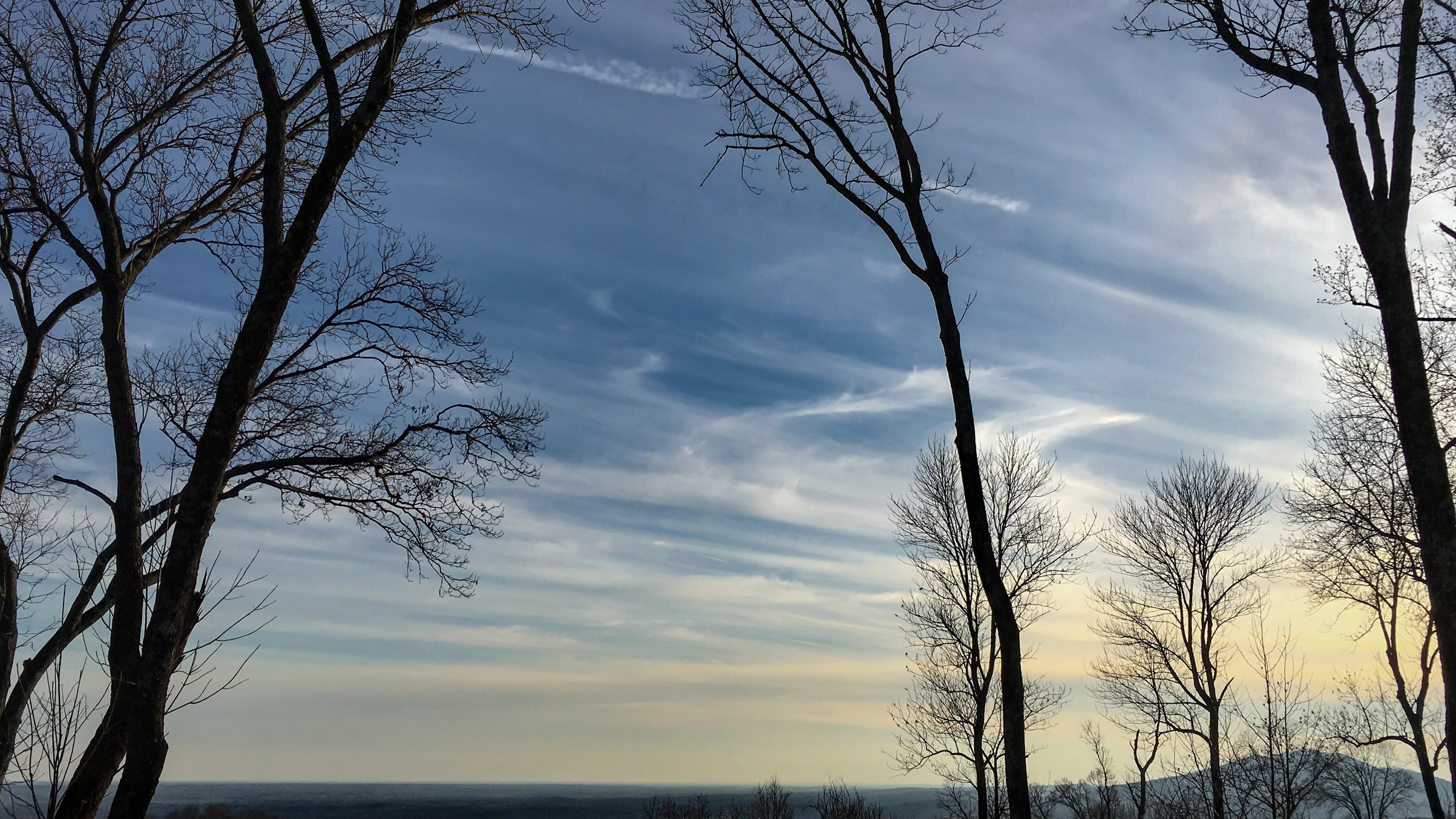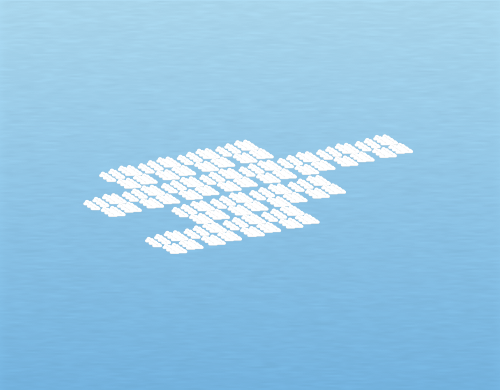Cirrus Clouds: High, Wispy Streaks
Definition: High-altitude, thin, and wispy cloud streaks composed of ice crystals
Description & Characteristics. Cirrus clouds have a distinct look relative to the other nine cloud types. Because cirrus clouds are made of ice crystals, they look different than your typical puffy cloud shape, and can take on a number of different forms that resemble spider webs, fish skeletons, mares’ tail, or hair-like commas. If you’re observing a cloud that’s fibrous in nature, there’s a strong chance you’re looking at a cirrus cloud.
But all cirrus clouds don’t have that distinctive, fibrous shape. They can also be found clumped together (cirrus spissatus), be entangled (cirrus intortus), and can look not quite as majestic when you spot them closer to the horizon. Because of their ice crystal composition, cirrus clouds are also capable of various optical phenomena such as sun dogs and cloud iridescence.
Though human-formed, condensation trails from aircraft can become cirrus clouds in the technical sense (cirrus homogenitus), created as a result of jet exhaust in cold temperatures found in the upper parts of the troposphere.
Cirrus Cloud Facts
Cloud Level (Étage): High
Altitude/Height: 5-15km (16,000-49,000 ft)
Latin Term: Derives from cirro-, meaning curl
Abbreviation: Cirrus can be abbreviated as Ci
Cloud Color: White to light gray
Precipitation Potential: None
Sky Cover: Mostly sunny to sunny
Cloud Frequency: Very common
Cirrus Cloud Species
Cirrus clouds have five associated cloud species: castellanus, fibratus, floccus, spissatus, and uncinus. The species spissatus and uncinus are unique to cirrus clouds.
Rising towers, turrets
Fiberlike, hairlike
Puffy, ragged tufts
Packed tightly, dense
Curved, comma-shaped
Cirrus Cloud Varieties
Cirrus clouds have four associated cloud varieties: duplicatus, intortus, radiatus, and vertebratus. The varieties intortus and vertebratus are unique to cirrus clouds.
Multilayered
Interlaced, entangled
Parallel bands and strips
Fishbone-like, resembling ribs
Cirrus Cloud Supplementary Features
Cirrus clouds have two associated supplementary features: fluctus and mamma. ⛅
Kelvin-Helmholtz waves, curls
Sac-like, resembling cow udders
Cirrus Cloud Accessories & Other Clouds
Cirrus clouds don’t have any associated accessory clouds, but do have two other clouds associated with the cloud type: homogenitus and homomutatus. ⛅
Caused by human activity
Mutated from a homogenitus
Similar Cloud Types
Both cirrus and cirrocumulus clouds are found at the same altitude, and a lot of times when observing cirrocumulus clouds, you’ll see cirrus clouds in close proximation. The biggest difference between the two is cirrocumulus clouds contain puffy cloudlets and look like grains of rice, where cirrus clouds are more fibrous, hair-like, or wispy in nature.
Cirrus vs. Cirrocumulus
Cirrus and cirrostratus clouds are found at the same altitude and both can be fibrous in nature. When deciding between the two, remember that a cirrostratus cloud generally covers the sky and is more of a pale, veil-like layer cloud, where you’ll generally see more individual elements in a cirrus cloud, such as comma shapes, fishbone-like shapes, and other wispy shapes..





























